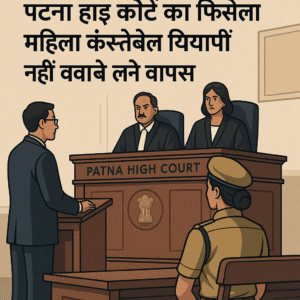Background of the Case
In the heart of Bihar, a landmark legal battle unfolded that shed light on the state’s stringent liquor prohibition laws and the consequences of transporting illicit alcohol. The case revolves around Md. Irfan Alam, a truck owner who found himself entangled in a complex legal challenge after his vehicle was seized for allegedly transporting a substantial quantity of illegal liquor.
The Prohibition Context
The Bihar Prohibition and Excise Act of 2016 represents one of the most aggressive anti-liquor legislations in India. Enacted with the ambitious goal of completely eliminating liquor and intoxicants from the state, the Act comes with severe penalties for those found violating its provisions. The law empowers authorities to not just penalize individuals but also confiscate vehicles and other conveyances used in the transportation of prohibited substances.
The Incident
On a fateful day, a truck registered with the number WB-23D-9255, owned by Md. Irfan Alam, was intercepted by authorities. The vehicle was found carrying a significant quantity of illicit liquor, leading to the registration of a criminal case (Rosera Police Station Case No. 58 of 2018) under Section 30(a) and other related sections of the Prohibition Act.
The Legal Process
- Initial Seizure: The truck was immediately seized, and a report was sent to the District Collector recommending vehicle confiscation.
- Confiscation Order: After following the legal procedure, which included issuing a show cause notice to the owner, the confiscating authority ordered the truck’s confiscation on August 29, 2020.
- Appeal and Rejection: Irfan Alam appealed against the confiscation to the Excise Commissioner of Bihar, but his appeal was dismissed on September 30, 2020.
- Public Auction: The truck was subsequently auctioned for Rs. 7,89,000 and sold to another individual (Respondent No. 7).
Irfan Alam’s Legal Challenge
Challenging the confiscation and auction, Irfan Alam approached the Patna High Court through a writ petition. His primary arguments were:
Key Arguments
- Procedural Violations:
- The auction was conducted without proper notice to the truck’s registered owner
- No opportunity was given to him to offer the reserve price
- The auction notice was allegedly sent to an incorrect address
- Lack of Knowledge:
- The consignors had described the goods as household items and clothes
- The bundles were sealed, making it impossible to verify their contents
- Neither the driver, staff, nor the owner had knowledge of the illicit liquor
- Regulatory Gaps:
- The Act lacked clear rules for confiscation and auction procedures
- No specific guidelines were prescribed for selling confiscated vehicles
The High Court’s Reasoning
The two-judge bench, comprising Justice Chakradhari Sharan Singh and Justice Chandra Prakash Singh, carefully examined the arguments and rejected most of Irfan Alam’s contentions.
Key Observations
- Factual Acknowledgment:
- It was undisputed that a substantial quantity of illicit liquor was recovered from the truck
- The truck’s owner is legally responsible for the goods being transported
- Procedural Compliance:
- A public notice for the auction was published in a newspaper
- The authorities claimed to have sent a notice to the owner’s address via speed post
- Regulatory Interpretation:
- The court interpreted Section 95 of the Act as an enabling provision, not a mandatory requirement for rule-making
- The Act was considered workable even without detailed rules
- Owner’s Responsibility:
- The court emphasized that the truck owner cannot escape liability by claiming ignorance
- The presence of illicit liquor in the vehicle made it liable for confiscation under Section 56 of the Act
Credibility and Misconduct
The court strongly criticized Irfan Alam for what it perceived as misleading the court:
- He claimed no connection to his original address
- Later documents showed he had used the same address in previous communications
- The court viewed this as an attempt to manipulate legal proceedings
The Verdict
The Patna High Court dismissed the writ petition, upholding:
- The confiscation order
- The public auction process
- The authorities’ actions under the Bihar Prohibition and Excise Act
Implications
The judgment reinforces several critical legal principles:
- Strict liability for vehicle owners transporting prohibited goods
- Broad powers of state authorities in implementing prohibition laws
- The importance of procedural integrity in legal proceedings
Conclusion
This case exemplifies the complex legal landscape surrounding Bihar’s liquor prohibition laws. It underscores the state’s commitment to eliminating liquor trade and the significant legal risks for those attempting to circumvent these regulations.
The court’s decision sends a clear message: ignorance is not a defense, and vehicle owners bear substantial responsibility for the goods they transport.
Key Takeaway: In the realm of strict prohibition laws, due diligence and thorough verification of cargo are not just recommended—they are legally imperative.
Read
the full judgement Below;
https://patnahighcourt.gov.in/viewjudgment/MTUjMjI5NCMyMDIxIzEjTg==-qfUnczygX44=







